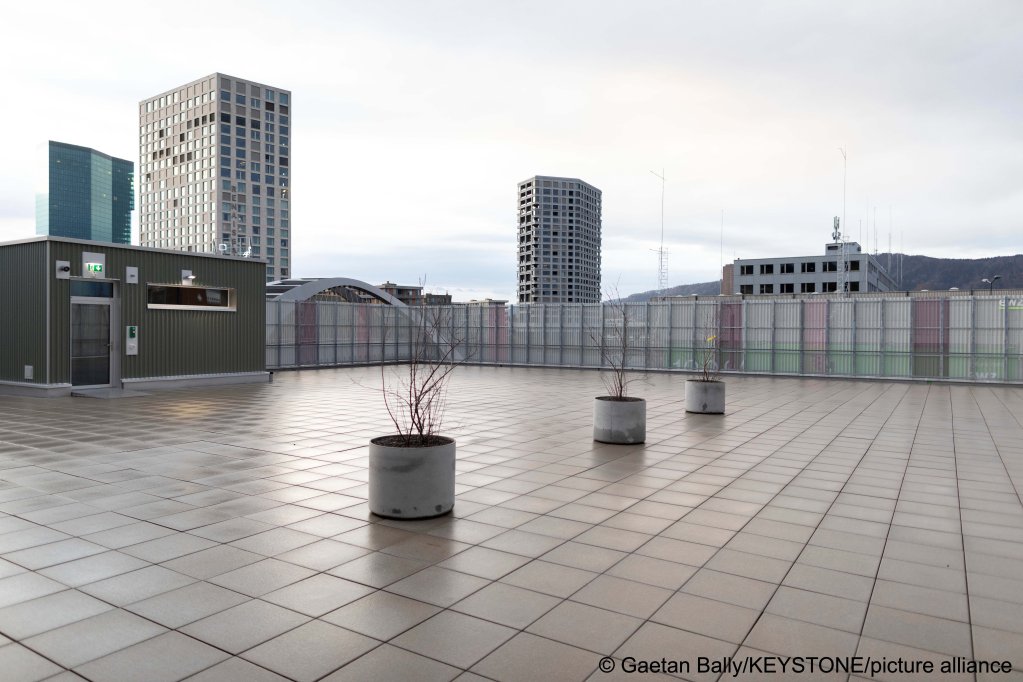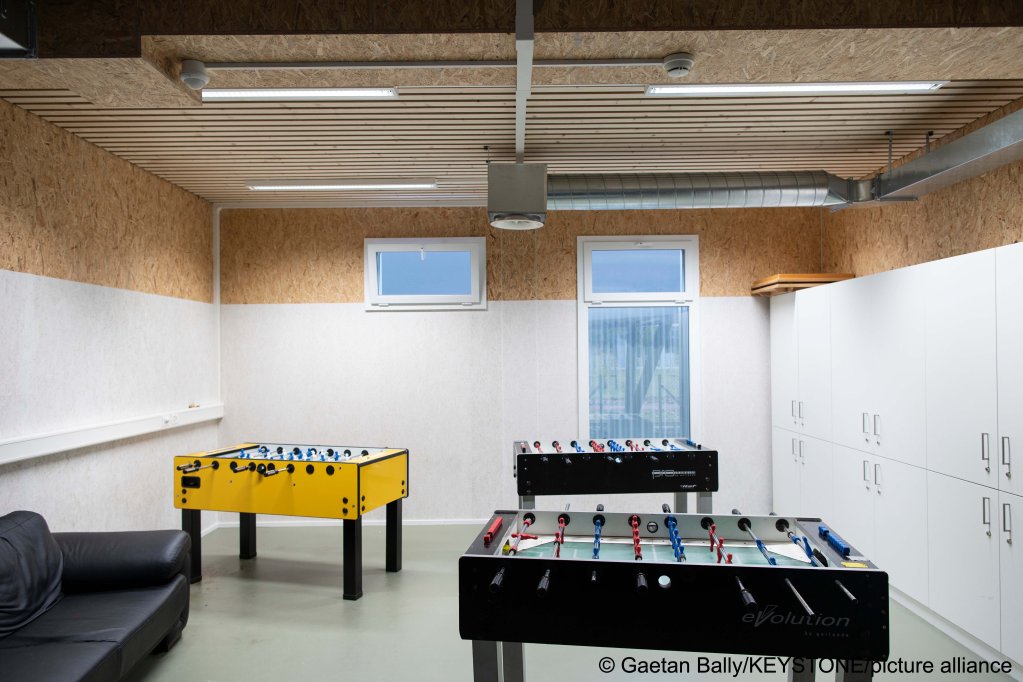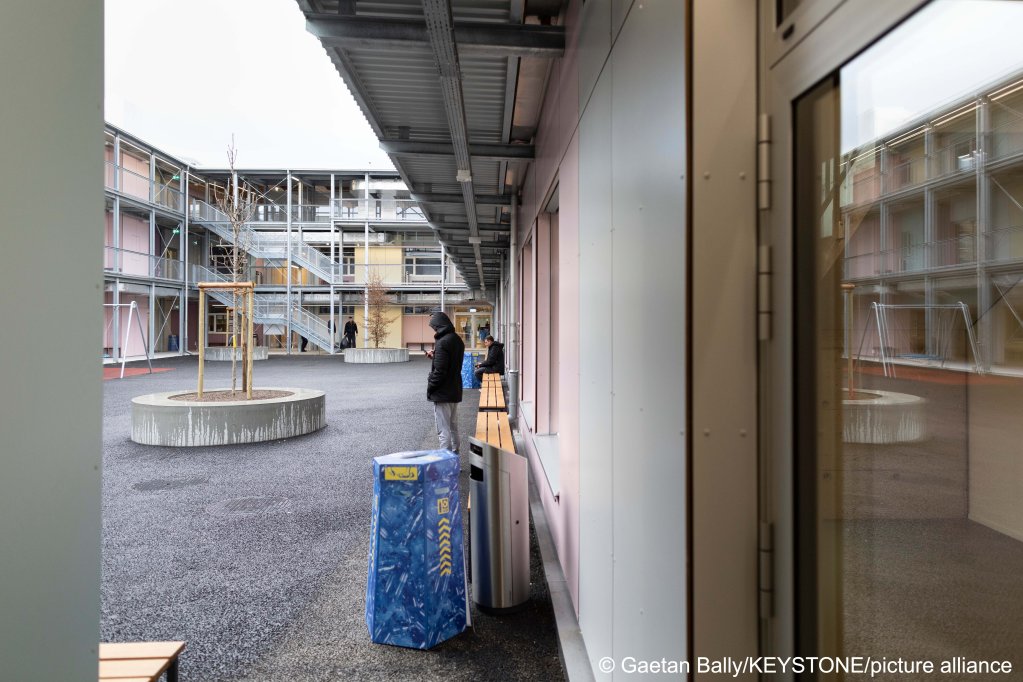The Swiss authorities said a 24-hour asylum procedure pilot project, which has now been rolled out across the alpine country, has been judged "a success" in reducing applications from individuals with very little chance of obtaining asylum.
The Swiss authorities have been trailing a 24-hour asylum procedure for asylum seekers who have little to no chance of actually being granted asylum over the last six months. The project is now being rolled out across the country, as it has been judged a "success."
Speaking in the city of Bern on Friday (May 10), the Swiss Migration Ministry (Staatssekretariat für Migration SEM), told journalists that the 24-hour process was working well, reported the German news agency dpa.
Authorities decided to roll out the project in April across the country after noting that the number of asylum seekers applying for asylum from countries like Morocco, Algeria, Tunisia and Libya had sunk by 40 percent. People from those countries have little chance of being granted asylum in Switzerland.
Also read: Populist right dominates Swiss elections
Little chance of receiving asylum
According to Swiss data from SEM, only about one percent of applicants from those four North African countries are actually granted asylum. The quick process is meant to avoid the asylum seeker getting overwhelmed by applications that don't have much chance of success, states SEM.
Almost half of the 413 applicants who attempted asylum via the process in the last six months were refused, SEM told dpa. They were then asked to leave the first reception facilities where they had been staying.
About 100 of the applicants were sent back to the EU country of first entry under the so-called Dublin agreement.
Thirty-one cases were refused outright, because according to the Swiss authorities, they had no basis on which to seek asylum. In the case of 14 appeals, the court upheld the decisions taken by the authorities.
Also read: Austria and Germany start border checks, Switzerland may follow
Pilot project began in November
According to information published on SEM’s website, the pilot project was brought in in November 2023, when it was found that 6,153 people coming from Algeria, Libya, Morocco and Tunisia had applied for asylum via the CFA (Federal Asylum Bureau) in Switzerland. This group of people at the time represented 22 percent of all asylum claims the CFA was handling, states SEM.

Data from the European Union Agency for Asylum EUAA showed that the number of requests for asylum EU-wide rose in the first half of 2023 by 28 percent.
The pilot project began on November 10, 2023 and was first scheduled to run until the end of February 2024. After an initial assessment, the authorities found that the fast-procedure reduced the number of asylum seekers from North African countries applying in Zurich by more than 50 percent.
During the same period of time, the number of applicants from North African countries at other asylum authorities in Switzerland only dropped "minimally."
During the test-phase authorities also found that those really interested in applying for asylum were more willing to start a dialogue with the authorities early on. This made it easier for the authorities to provide the correct help and protection.
Also read: Switzerland's largest party wants asylum procedures relocated abroad
In the same period, just 14 people from North African countries had been granted permanent or provisional asylum in Switzerland. In 2023, states SEM’s information sheet on the new procedure, around 10 percent of asylum claims lodged by people coming from North African countries resulted in them being returned to their countries of origin. Around 57 percent of those who applied for asylum from these countries were found to have an ongoing claim in another EU country, and were returned there. Around nine percent of asylum claimants withdrew their application, so the process was discontinued.
Crime rate also influenced genesis of project
In their information sheet, the Swiss authorities also claim that a higher proportion of asylum seekers from North African countries were found guilty of a greater incidence of crimes in Switzerland, including serious crimes and violations of the asylum act. The authorities write that "jail terms, interrogations and being found guilty in court didn’t seem to put these repeat offenders off committing these crimes."

Most of the crimes committed, the SEM underlines, were of a minor nature. Petty theft, pickpocketing, or car crime. The group of people found to be committing the greatest number of these crimes were minors from North African countries, stated the SEM.
Because of this background, the pilot project was first rolled out in the city of Zurich, to enable the authorities to inform those with a very low possibility of receiving asylum of their likely chances quickly.
Fast-track returns, 'fully within the law'
The fast process made it possible for the Swiss authorities to return people more quickly to their own countries. For those who were granted asylum, the period of uncertainty was greatly reduced, which had a "positive effect" on further progress through the asylum system and which authorities could best help them.

The Swiss authorities state that the 24-hour process does not conflict with someone’s right to seek asylum, since their claims are still heard and processed in line with international law and the agreements Switzerland has signed.
If the authorities discover that the asylum case cannot be examined sufficiently within the 24-hour period, they continue the next day. If after that it is still not possible to complete the procedure, the applicant would then enter the normal asylum system in Switzerland.
A first analysis also showed that in the cases of all the appeals lodged by applicants who wanted to challenge the state, the administrative court upheld the state’s decision to refuse asylum.
